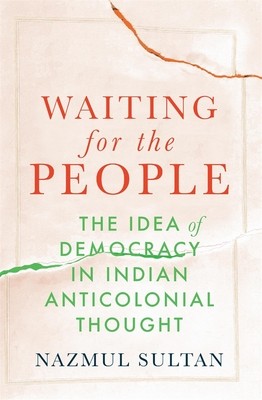
- We will send in 10–14 business days.
- Author: Nazmul Sultan
- Publisher: Belknap Press
- Year: 2024
- Pages: 288
- ISBN-10: 0674290372
- ISBN-13: 9780674290372
- Format: 15.5 x 23.6 x 3.1 cm, kieti viršeliai
- Language: English
- SAVE -10% with code: EXTRA
Reviews
Description
"An engaging, innovative, and wide-ranging account of the way in which anticolonial thought in India creatively reconceptualized the idea of popular sovereignty. It sheds new light on the theoretical relationship between democratic legitimation and development."
--Pratap Bhanu Mehta
EXTRA 10 % discount with code: EXTRA
The promotion ends in 23d.17:42:14
The discount code is valid when purchasing from 10 €. Discounts do not stack.
- Author: Nazmul Sultan
- Publisher: Belknap Press
- Year: 2024
- Pages: 288
- ISBN-10: 0674290372
- ISBN-13: 9780674290372
- Format: 15.5 x 23.6 x 3.1 cm, kieti viršeliai
- Language: English English
"An engaging, innovative, and wide-ranging account of the way in which anticolonial thought in India creatively reconceptualized the idea of popular sovereignty. It sheds new light on the theoretical relationship between democratic legitimation and development."
--Pratap Bhanu Mehta


Reviews